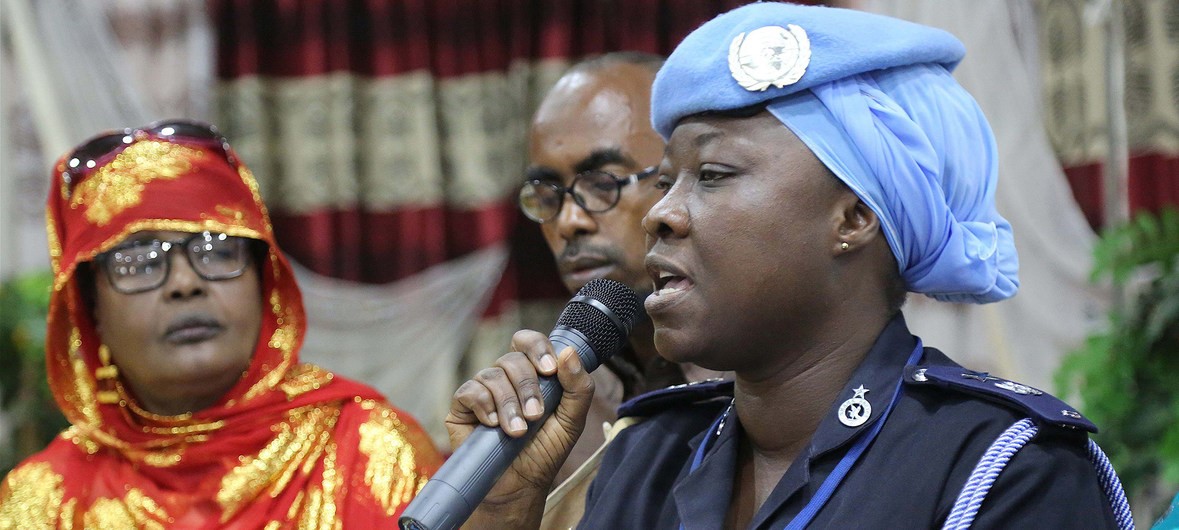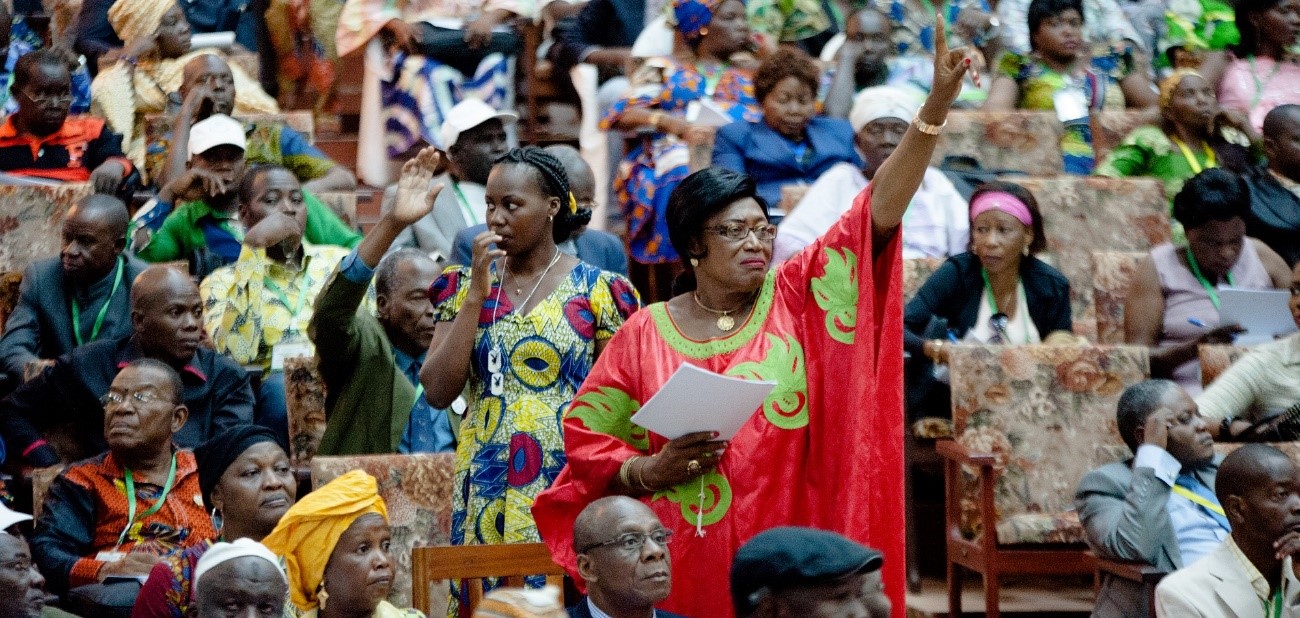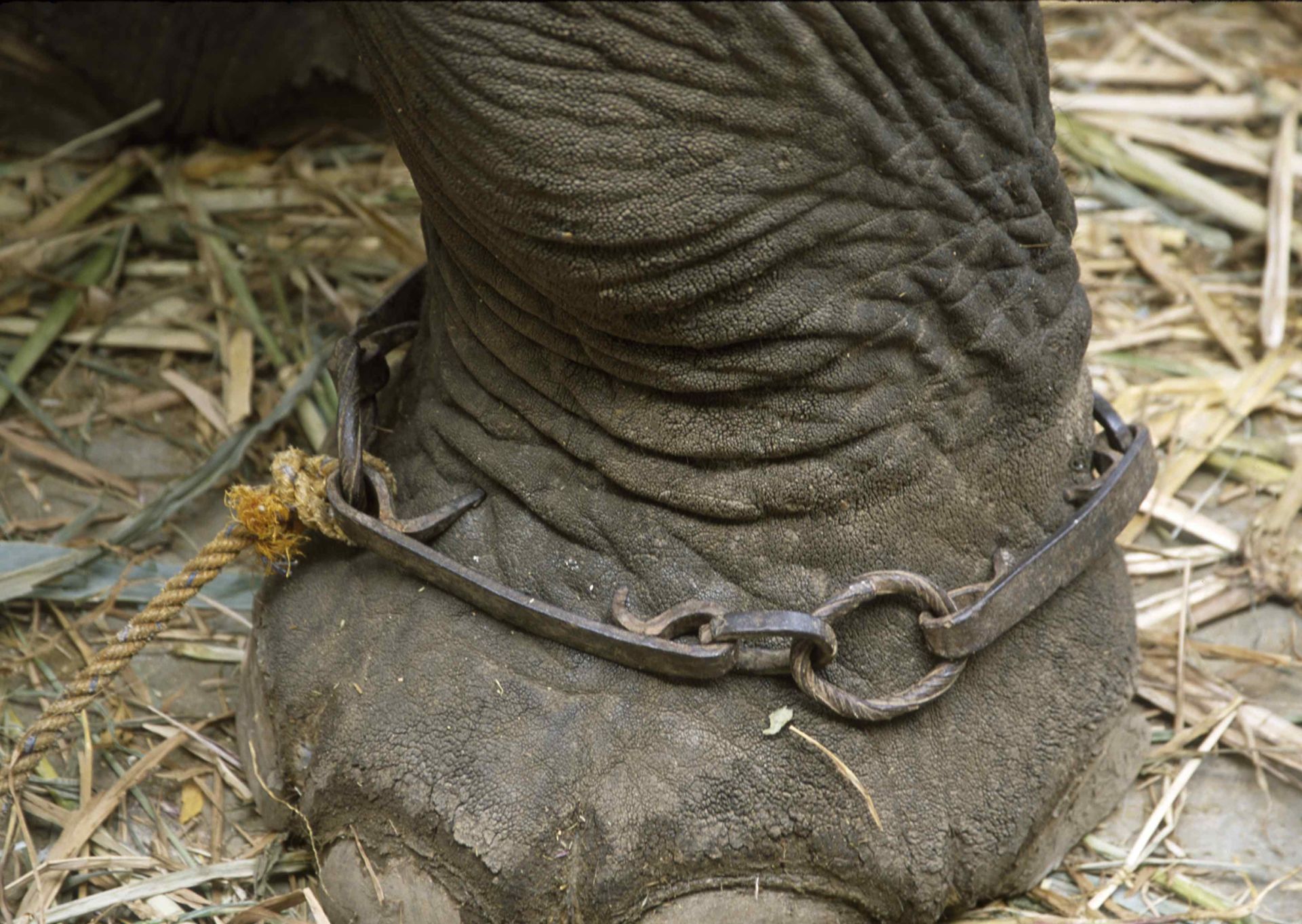COVID-19, deadly as it is for all of us, has multifaceted security dimensions and grave implications for those caught in the midst of conflicts, postconflict or humanitarian crises. In particular, the pandemic may disrupt humanitarian aid flows, limit peace operations, and undermine or delay diplomacy efforts. Even worse, in times of crisis, gender equality is a goal that tends to be regarded as secondary.
As a result, responses to the pandemic usually don’t address existing gender inequalities and end up exacerbating them. Moreover, the broader impact of the pandemic remains yet to be seen.
Consequently, the Women, Peace and Security Agenda (WPS) is particularly affected by the pandemic. The WPS Agenda, adopted by the United Nations Security Council in Resolution 1325 in 2000, thus recognized for 20 years by the international community, is now at risk because of the pandemic.
COVID-19 is exacerbating gender inequality in conflict-affected settings, post-conflict and humanitarian crises contexts
The reason is obvious: With the outbreak of the pandemic, women and girls are more likely to be at risk because they are more vulnerable than the rest of the population. As I explained in a recent article on Impakter, this is as a result of facing higher gender-based violence, difficulties to access basic goods and services, unpaid care work, early and forced child marriage and other abuses and human right violations that women and girls regularly suffer in conflict-affected settings, post-conflict and humanitarian crises.
Their plight is particularly visible and poignant in refugee camps, shelters hosting internally displaced persons and when they are on the move, part of migrant flows. This is why the United Nations Population Fund expects an exacerbation of gender-based violence, early and forced child marriage, female genital mutilation, and unintended pregnancy.
Rapid assessments and responses to the COVID-19 pandemic must be both conflict and gender-sensitive to prevent increased suffering of women and girls caused by their added vulnerability. In these contexts, where women and girls already suffer exclusion to access basic goods and essential services such as healthcare, health systems are not properly equipped to respond to the COVID-19 crisis.
Also, limited access to essential health information, insufficient or non-existing sanitation facilities, and crowded conditions prevent women and girls from conducting the hygienic and social distancing measures recommended to avoid the spreading of the virus and risks for their lives.
Evidence from past epidemics, such as Ebola or Zika, shows that efforts to contain outbreaks frequently reduce resources from routine health services, including healthcare during pregnancies or contraceptives treatments. The pandemic undermines access to sexual and reproductive health services which were already limited.
 Photo Credit: United Nations
Photo Credit: United Nations
Gender inequality rates are particularly high in conflict-affected, post-conflict, and humanitarian crises contexts. Because of that, women are deeply excluded from all decision-making processes (including peace and security issues).
As a result, women are frequently kept out of the design and implementation of peace and political solutions to crises. Consequently, they have a low capacity to influence decision-making processes on social, economic, health, protection, and justice.
In addition, the responses to the pandemic should also be gender-sensitive in consideration of the fact that the women are those who predominantly carry out the burden of the provision of primary healthcare. 70 percent of the health and social workforce caring for affected people is made up of women and increasingly health workers are getting infected by COVID-19.
Women and girls also bear exacerbated burdens of unpaid care work as health care systems become overcrowded with the sick. As a result, the responsibility for caring for ill family members and the elderly is usually given to women, again because of the gendered roles and dynamics established in society.
Furthermore, the closure of schools in pandemic times increases the burden of unpaid care work because women are also those who usually care for children.
 Photo Credit: Inclusive Security
Photo Credit: Inclusive Security
The promulgation of national emergency laws by governments to fight against the COVID-19, such as the introduction of lockdowns, closed borders, self-isolation, and other restrictions on citizen´s movements or rights may also have grave implications for gender equality around the world.
This is so particularly in contexts affected by armed conflicts, post-conflict, and humanitarian crises because, as said before, crises and conflicts impact disproportionately the pre-existing inequalities that women and girls already suffer.
COVID-19 may become a driver of conflict
In this context, it is imperative to prevent the COVID-19 from becoming a driver of conflict exacerbating existing tensions and violence.
To this end, raising awareness about the coronavirus health crisis and the prevention of the spread of the pandemic, especially in communities where the government’s reach is limited, must be a top priority.
For that purpose, it is necessary to avoid misinformation, distrust, and the spread of rumors which could increase tensions leading to new forms of violence or the rise of previously existing ones, as was the case in many places during the Ebola outbreak.
This is particularly important because, with the escalating spread of the COVID-19, fake news, hate speech and stigma have exploded, undermining social cohesion in times of compulsory social distancing.
Technology and evidence-based strategies to empower women and girls
Regarding the management of COVID-19 response, digital technology and online tools to collect data may turn out to be highly useful to address the specific needs of the population and provide solutions during the pandemic. But for women technology is a double sword: It is frequently less available to them or it could become a source of potential abuse.
As a result, it is essential to guarantee that alternative methods to digital technology and online tools (such as access to radio, megaphones, datasheets, technical brochures or other materials for reading, classifying or writing information) are accessible to women and girls. Furthermore, gender-disaggregated data, including on key issues such as the rates of infection, differential economic impacts, or the incidence of gender-based violence and sexual abuse, is essential to understanding appropriately the epidemiological, social, and economic risks and impacts of the pandemic.
Moreover, women´s civil society organizations have a key role to play. They are indispensable networks for sharing the right information about COVID-19 and as key vehicles for women´s meaningful participation in the decision-making processes. They can considerably help sustain women’s role in the key areas of disease surveillance, prevention, detection and responses to the long-term impacts of the pandemic.
In this regard, it is especially important to develop strategies to foster women´s economic empowerment. This should include exploring cash transfer programming to mitigate the impact of the COVID-19 on women´s rights and, in turn, advancing towards gender equality.
Gender-responsive policies are indispensable to mitigate the impact of the COVID-19 on women and girls´ rights
In sum, it is necessary to take into account how the COVID-19 outbreak is impacting conflict and humanitarian dynamics with a gender lens. To meaningfully address this global health crisis, all hands need to be on board, particularly women’s and girls’. For that reason, strengthening the leadership and meaningful participation of women and girls in all decision-making processes is paramount.
Gender-responsive policies and practices related to education, women´s economic empowerment, food security, livelihoods, nutrition, healthcare, and other key topics are indispensable in the framework of the pandemic. Recovery measures designed and implemented by policymakers, donors, practitioners, or civil society organizations must engage with local communities. This means directly addressing women´s political, social, and economic needs and priorities with well-planned, long-term support to achieve gender equality.
No woman and girl must ever be left behind, particularly the most marginalized and vulnerable, including migrants, LGBTQI persons, or the ones living with disabilities or HIV.
EDITOR’S NOTE: The opinions expressed here by Impakter.com columnists are their own, not those of Impakter.com.
Featured Image: Phyllis Osei, UN Police advisor, speaks during the Women Peace Forum held in Kismaayo, Somalia on 25 July 2018. The forum was organized by the Somali National Women Association (SNWA) and supported by the United Nations Assistance Mission in Somalia (UNSOM) Source: News UN org



 Photo Credit:
Photo Credit:  Photo Credit:
Photo Credit: 






